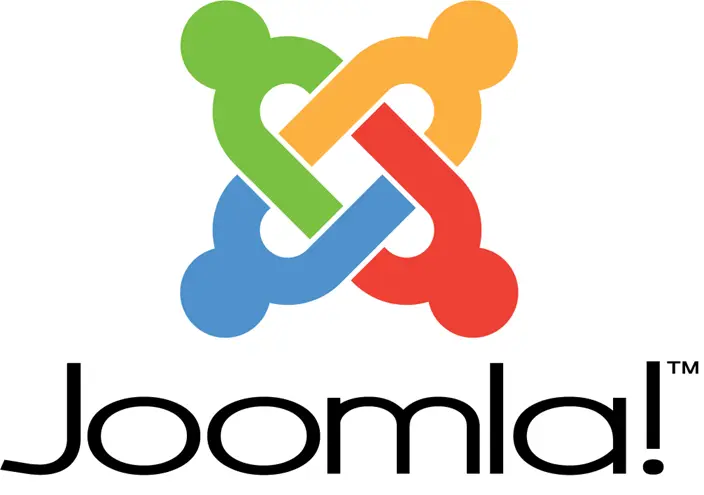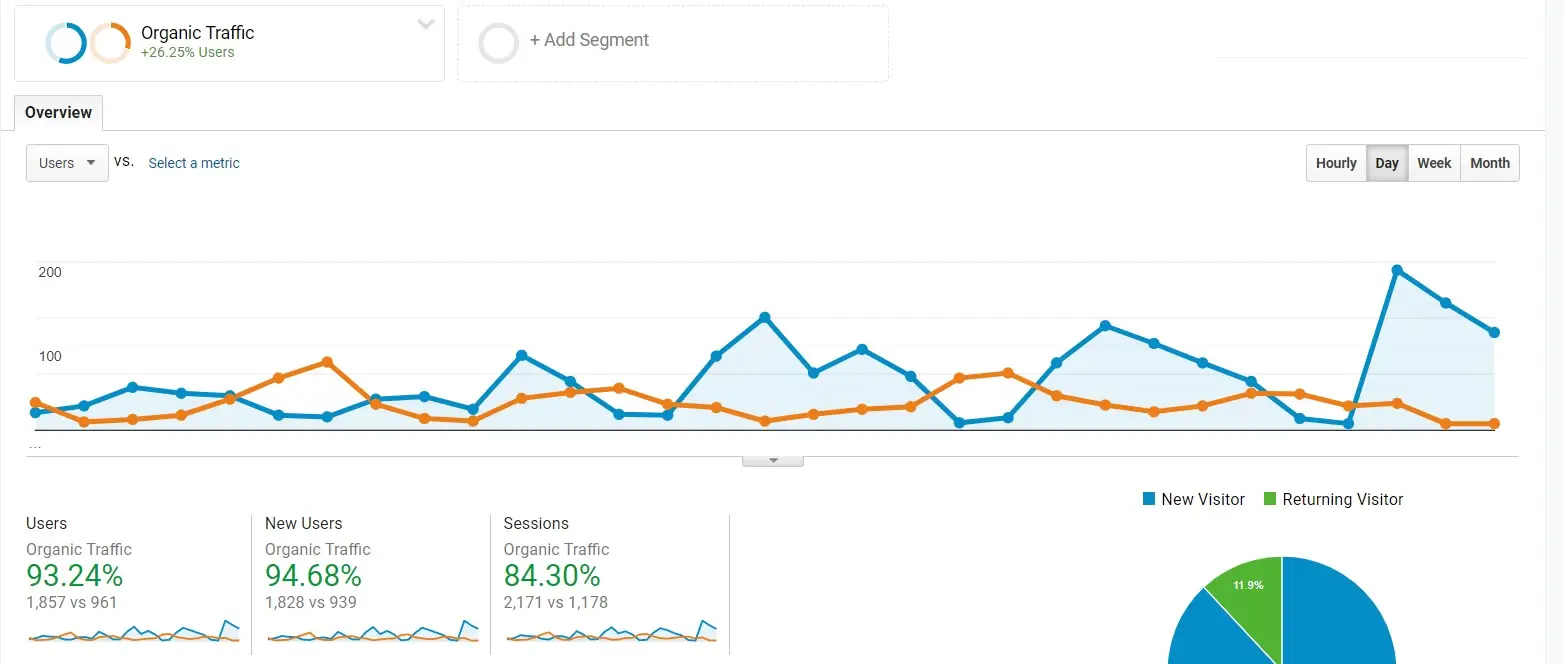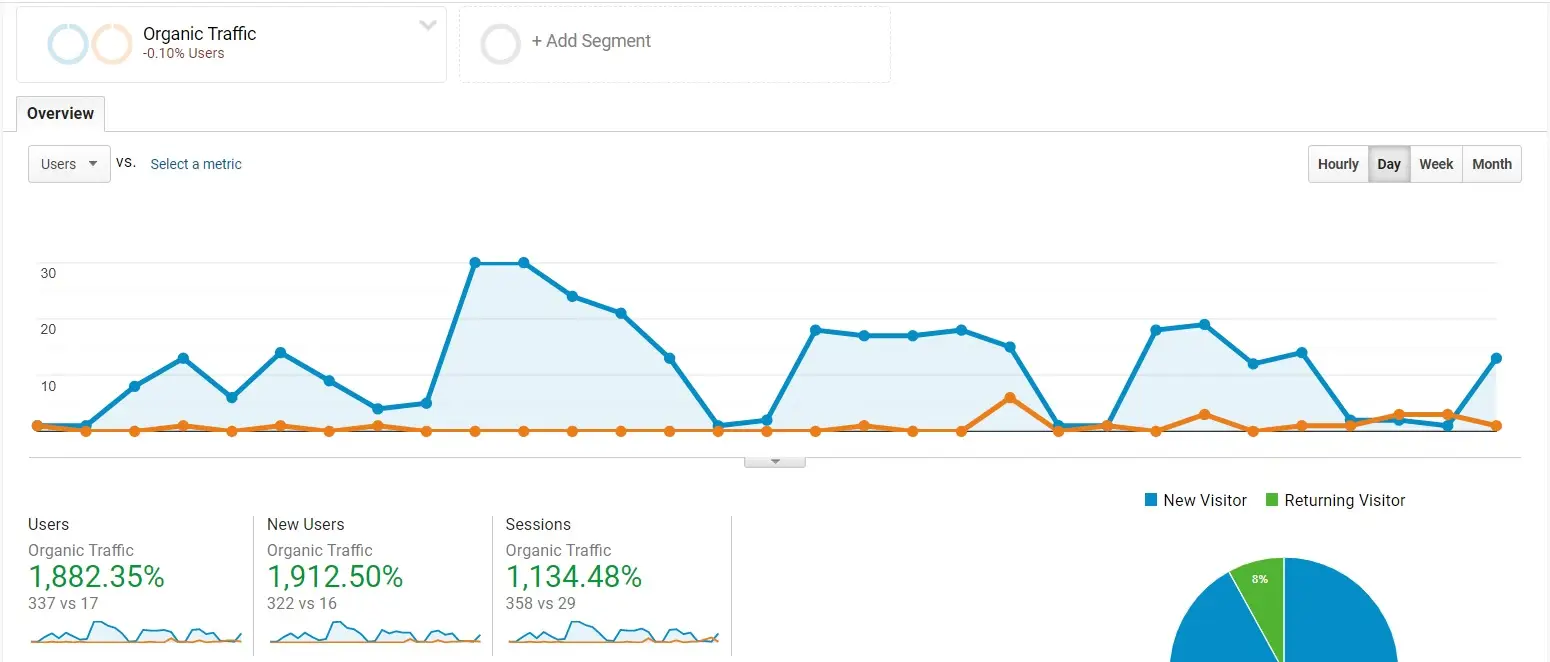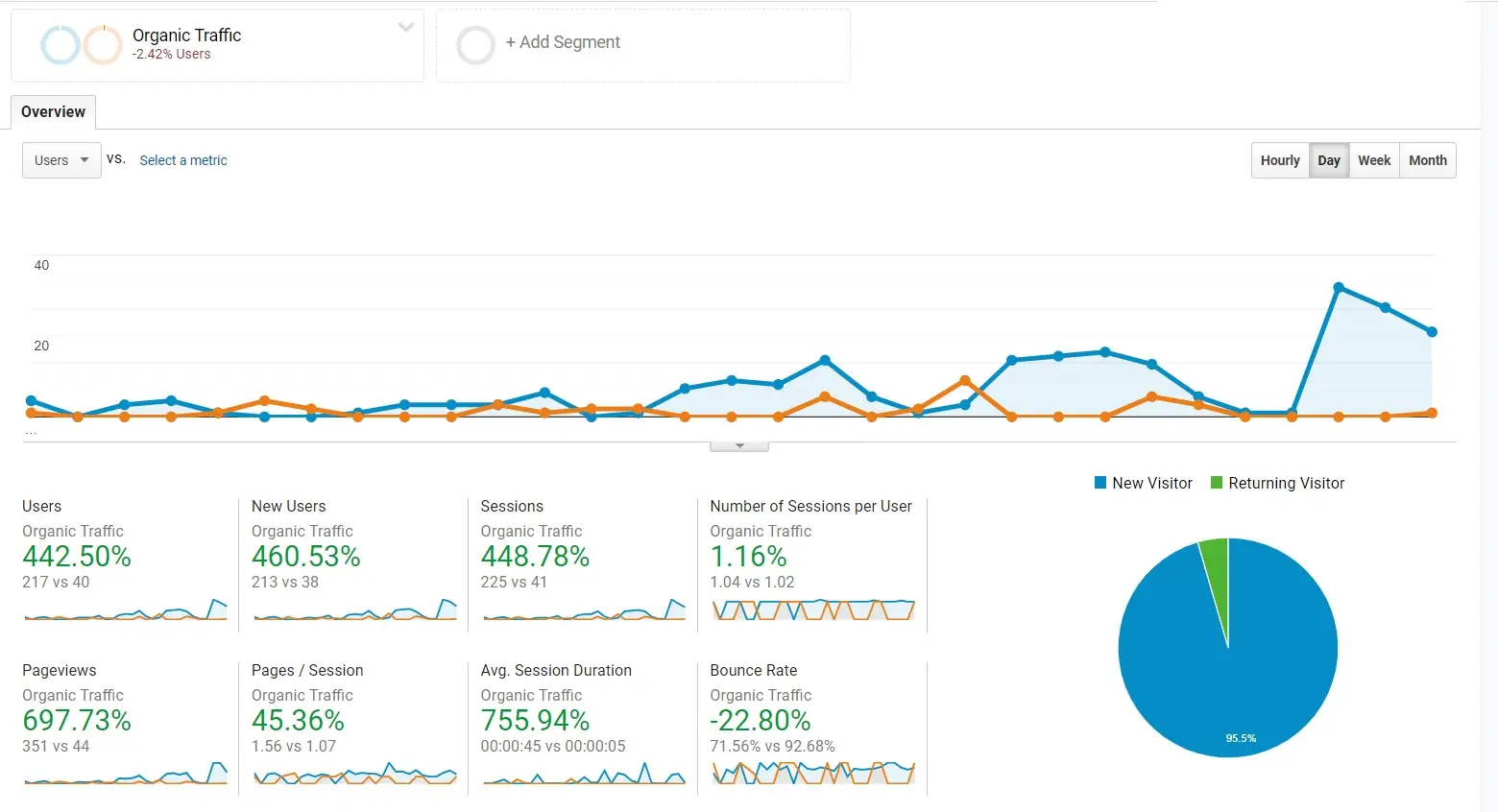Unlocking SEO Potential: France to Global Domination
SEO serves as a pivotal catalyst for businesses seeking to broaden their reach, especially within France’s dynamic market. Our meticulously crafted SEO strategies, effectively attract local as well as global consumers who are actively seeking for businesses like yours.
SEO Web Up will not only reinforce your brand’s authority but also nurture a meaningful connection with the target community. A well-executed SEO strategy has the potential to transform your website into a formidable instrument for driving targeted traffic, enhancing your credibility, and ultimately fostering sustainable growth.
Embrace the opportunity to unlock your business’s full potential by strategically targeting France’s most sought-after locales, where the efficacy of location-based SEO is unmatched.
Industry spotlight: Digital Triumphs and Secrets of Online Success in France
1. Fashion and Luxury Goods
When you think of fashion, France immediately springs to mind, with iconic brands like Chanel, Louis Vuitton, and Dior setting the global stage. The French fashion industry doesn’t just sell products; it sells dreams. Online marketing is all about storytelling, with stunning visuals that transport consumers into a world of elegance and style. Social media platforms like Instagram become virtual runways, showcasing the latest collections through mesmerizing posts and reels. Influencers and fashion icons amplify the message, turning every collection launch into a highly anticipated event, where fans eagerly await their chance to embrace the latest trends.
2. Food and Beverage
France’s culinary scene is nothing short of legendary, and the food and beverage industry thrives on its rich traditions and innovative flair. Brands leverage online marketing to share delectable visuals and engaging recipes that tantalize the taste buds. Imagine scrolling through Instagram and stumbling upon mouthwatering dishes accompanied by stories that highlight the artistry behind each meal. Collaborations with renowned chefs and food bloggers elevate the experience, inviting customers to share their own culinary creations and making each meal a celebration of French culture.
3. Tourism
With its enchanting cities, breathtaking landscapes, and rich history, France is a dream destination for travelers worldwide. The tourism industry harnesses online marketing to paint an irresistible picture of French adventures. Picture stunning visuals of the Eiffel Tower at sunset or the lavender fields of Provence, shared through vibrant social media posts. Engaging content invites potential travelers to envision their dream trips, while user-generated content builds a community of explorers eager to share their own French escapades. Every post inspires wanderlust, making each journey feel like a shared adventure.
4. Technology and Startups
In recent years, France has emerged as a hotbed of innovation, particularly in tech hubs like Paris. The startup scene is alive with creativity, and companies leverage online marketing to connect with a community of tech enthusiasts and investors. Informative webinars and engaging blog posts offer insights into the latest trends, while social media platforms become spaces for collaboration and idea exchange. By sharing success stories and celebrating the entrepreneurial spirit, these tech innovators position France as a leader in global technological advancement.
5. Automotive
France’s automotive industry is steeped in history, featuring iconic brands like Renault, Peugeot, and Citroën. These companies utilize online marketing to generate excitement around new models and innovative technologies. Imagine dynamic videos that showcase sleek designs and cutting-edge features, inviting customers to explore virtual showrooms from the comfort of their homes. Engaging social media campaigns foster discussions about sustainability and electric vehicles, connecting with consumers who are passionate about the future of mobility.
6. Health and Beauty
The health and beauty sector in France is a powerhouse of glamour and innovation, with brands like L’Oréal and Clarins leading the charge. Online marketing here is all about engagement and education, with tutorials and beauty tips that invite consumers into the brand’s world. Picture influencers sharing their beauty routines on Instagram, creating a buzz around new product launches. Special promotions and interactive content foster a sense of community, making every customer feel like they are part of an exclusive club dedicated to beauty and self-care.
7. Finance and Insurance
Navigating the finance and insurance sectors can be daunting, but in France, companies like BNP Paribas and AXA are transforming the experience. They leverage online marketing to demystify financial products through engaging content that empowers consumers. Imagine informative infographics and webinars that break down complex topics into digestible pieces. By fostering trust and transparency on social media, these companies make financial advice accessible and relatable, turning uncertainty into confidence for their clients.
8. Arts and Culture
As a global cultural beacon, France is rich in art, history, and creativity. The arts and culture industry thrives on online marketing to promote exhibitions, performances, and events that ignite passion and curiosity. Picture captivating visuals and engaging storytelling that invite audiences to explore cultural heritage through virtual tours and live-streamed events. By creating connections and fostering appreciation for the arts, cultural institutions turn every event into a celebration of creativity that resonates with audiences worldwide.
Online Marketing Mavericks: Inspiring Campaigns from Renowned Companies
1. L’Oréal: Beauty Beyond Borders
L’Oréal, the global beauty powerhouse, is a masterclass in personalization. Their online marketing strategy goes beyond just selling products; it’s about creating a beauty community. With vibrant social media campaigns that feature influencers and real customers, L’Oréal fosters engagement through user-generated content. Their personalized beauty quizzes and tailored recommendations on their website ensure every customer feels valued and understood.
2. Louis Vuitton: The Art of Luxury
Louis Vuitton isn’t just a brand; it’s an experience. Their online marketing strategy focuses on storytelling, showcasing the rich heritage and craftsmanship behind each product. Through visually stunning campaigns on social media, they create a sense of exclusivity and excitement around limited-edition launches. Each post is an invitation into the world of luxury, making followers feel like part of something special.
3. Danone: Nourishing Connections
Danone’s commitment to health and sustainability shines through in their online marketing efforts. Their website is a hub of informative content about nutrition and wellness, while engaging social media campaigns highlight product innovations and community initiatives. By collaborating with health influencers, Danone shares authentic stories that resonate with health-conscious consumers, building trust and loyalty.
4. Renault: Driving Innovation
Renault redefines the automotive experience with their interactive online marketing strategies. Their website features cutting-edge tools that allow customers to customize their vehicles, ensuring a personalized journey from the very start. Social media campaigns highlight customer stories and innovative features, while targeted ads bring new models directly to potential buyers, keeping the excitement of driving alive.
5. Carrefour: Grocery Shopping Made Easy
Carrefour transforms the grocery shopping experience with an engaging online presence. Their e-commerce platform is user-friendly and filled with personalized promotions that make shopping a breeze. Creative social media campaigns promote seasonal recipes and community initiatives, making customers feel connected to the brand and encouraging loyalty through shared experiences.
6. AXA: Insuring Your Peace of Mind
AXA stands out in the insurance industry by focusing on education and engagement. Their website offers valuable resources about insurance and financial planning, while social media campaigns highlight customer testimonials and real-life stories. Through targeted online ads, AXA ensures they reach the right audience, making insurance feel approachable and relevant.
7. BlaBlaCar: Travel with Community Spirit
BlaBlaCar has revolutionized carpooling in France, turning travel into a shared adventure. Their online marketing strategy emphasizes community and trust, utilizing social media to share user experiences and testimonials that resonate with potential travelers. Engaging content about travel tips and sustainability appeals to eco-conscious users, making carpooling not just economical but also socially rewarding.
8. TotalEnergies: Powering a Sustainable Future
TotalEnergies is not just about energy; it’s about a sustainable future. Their online marketing campaigns focus on educating consumers about renewable energy and environmental responsibility. The website is rich with resources, and social media efforts highlight their commitment to sustainability, engaging consumers who are passionate about protecting the planet.
9. Michelin: The Road to Safety
Michelin goes beyond tires; they promote a culture of safety and adventure. Their website is a treasure trove of guides and tools for tire selection, while social media campaigns emphasize road safety and travel inspiration. Engaging seasonal promotions keep customers informed, ensuring they choose the best options for their journeys ahead.
10. Accor Hotels: Your Home Away From Home
Accor Hotels makes booking a getaway feel effortless and exciting. Their website features enticing visuals and personalized recommendations that make every traveler feel special. Social media campaigns showcase beautiful destinations and unique experiences, while email newsletters keep loyal customers updated on exclusive deals, making travel irresistible.
11. Orange: Connecting People
Orange, a leader in telecommunications, knows the importance of connection—both online and offline. Their website offers easy access to services and customer support, while dynamic social media strategies engage users in real-time conversations. Targeted advertising campaigns highlight new products and promotions, ensuring customers never miss out on the latest offerings.
12. Sephora: Where Beauty Meets Innovation
Sephora is a beacon of creativity in the beauty world, and their online marketing reflects that. With personalized product recommendations and virtual try-on tools on their website, they create an immersive shopping experience. Their engaging social media content features tutorials and influencer collaborations, making beauty accessible and fun for everyone.
13. La Redoute: Fashion at Your Fingertips
La Redoute seamlessly blends fashion with home decor, using online marketing to create an inviting shopping atmosphere. Their website features curated collections and style guides that inspire customers. Engaging social media campaigns encourage followers to share their looks, fostering a community of fashion lovers excited to discover new trends.
14. Pierre Hermé: Sweet Indulgence
Pierre Hermé is not just a pastry chef; he’s an artist of flavors. His online marketing strategy celebrates the beauty of gourmet desserts. The website offers a stunning array of products, while social media channels share mouthwatering visuals and behind-the-scenes content. Engaging recipes and baking tips create a loyal following of food enthusiasts eager to indulge.
15. BlaBlaBus: Travel Smart and Affordable
BlaBlaBus is changing the way people travel on a budget. Their online marketing strategy reaches budget-conscious travelers through a user-friendly website that simplifies booking. Social media campaigns highlight customer experiences and special promotions, making bus travel appealing and accessible to everyone.
The SEO Map of France: Key Locations for Marketing Success
Paris
Paris, the dazzling capital of France, is not just famous for its iconic landmarks; it’s also a global business powerhouse. Home to multinational corporations and a burgeoning startup scene, Paris pulsates with energy and creativity. The La Défense district, with its sleek skyscrapers, is the epicenter of commerce, while the city’s vibrant arts and culture inspire innovation. Whether you’re sipping coffee in a bustling café or networking at a chic event, Paris offers an irresistible blend of business and lifestyle that attracts talent from around the globe.Lyon
Known as the gastronomic capital of France, Lyon serves up more than just exquisite cuisine. This city is a rising star in pharmaceuticals, biotechnology, and software development. With a strong support system for startups, including incubators and accelerators, Lyon is a nurturing ground for innovation. Plus, its central location in Europe makes it a strategic choice for businesses looking to expand. Enjoy the vibrant culture, historical architecture, and a quality of life that makes Lyon a fantastic place to work and live.Marseille
Marseille is where the Mediterranean spirit meets entrepreneurial flair. As France’s largest port, it plays a pivotal role in trade and logistics. With a diverse economy that includes shipping, tourism, and aerospace, Marseille is transforming into a dynamic business hub. The city’s rich cultural tapestry and vibrant community create an inspiring environment for startups. From its stunning coastline to the bustling markets, Marseille offers a unique blend of work and play, making it an exciting place for professionals.Toulouse
Welcome to Toulouse, the aerospace capital of Europe! Home to Airbus and a thriving tech ecosystem, Toulouse is synonymous with innovation. The city boasts a youthful energy, fueled by its prestigious universities and research centers. With a focus on technology and biotechnology, Toulouse is a hotspot for creative minds. Explore its charming pink-hued buildings and enjoy the vibrant atmosphere that makes this city a perfect place for both business and leisure.Nice
Nice, a jewel of the French Riviera, is not only famous for its stunning beaches but is also becoming a tech hub. With a growing number of startups in IT and digital marketing, Nice is blending business with a Mediterranean lifestyle. The city’s pleasant climate, vibrant arts scene, and outdoor activities create an inspiring backdrop for professionals. Whether you’re brainstorming in a seaside café or attending a networking event under the sun, Nice offers an idyllic environment for innovation.Nantes
Nantes is a city on the rise, celebrated for its commitment to sustainability and innovation. Known for its maritime industry and digital technology sectors, Nantes is attracting startups eager to make their mark. The city’s vibrant cultural scene, filled with festivals and artistic events, creates a lively atmosphere that energizes the business community. With a high quality of life and a focus on green practices, Nantes is an exciting place for entrepreneurs seeking a fresh start.Strasbourg
Strasbourg is a city where history meets opportunity, serving as the seat of the European Parliament. Its diverse economy spans healthcare, technology, and international trade, making it a strategic location for cross-border business. The blend of French and German culture fosters collaboration and innovation. Stroll through its picturesque streets lined with half-timbered houses, and you’ll find a vibrant community that welcomes both professionals and families, creating a unique environment for growth.Bordeaux
Bordeaux is not just about exquisite wine; it’s a burgeoning business hub, particularly in technology and tourism. With a strong startup ecosystem and several innovation centers, the city is attracting entrepreneurs looking to thrive. The beautiful architecture and rich history enhance its appeal, while Bordeaux’s commitment to sustainability makes it a forward-thinking choice for businesses. Enjoy the blend of history and modernity as you explore this captivating city.Lille
Lille is a vibrant city that combines rich history with modern business opportunities. Located near Belgium and the UK, it’s a strategic logistics hub with a strong focus on technology and trade. The city is home to numerous educational institutions, providing a skilled workforce for companies. With its lively arts scene, diverse community, and commitment to sustainability, Lille is an exciting place for entrepreneurs to innovate and grow.Grenoble
Nestled in the breathtaking French Alps, Grenoble is renowned for its focus on research and technology. The city is home to prestigious universities and research institutions, particularly in engineering and computer science. With a strong emphasis on clean technology and sustainability, Grenoble attracts startups and established companies eager to innovate. The stunning natural surroundings offer a perfect balance of work and outdoor adventure, making it an ideal destination for those seeking inspiration.Avignon
Avignon, famed for its rich history and the annual theater festival, is evolving as a business center with a strong focus on tourism, agriculture, and renewable energy. The city’s charm and strategic location in Provence make it appealing for agribusiness and environmental companies. Enjoy the vibrant cultural scene and welcoming atmosphere that make Avignon a delightful place for both business and leisure.Reims
Reims, located in the heart of the Champagne region, is a city that bubbles with potential. Known for its prestigious Champagne houses, the city also boasts a strong economy in logistics and transportation. Its strategic location near major highways and railways enhances its appeal for businesses. Reims offers a unique blend of tradition and modernity, creating a vibrant environment where businesses can flourish amid charming streets and cultural landmarks.Toulon
Toulon is a stunning Mediterranean city known for its naval and military port. With a diverse economy that includes shipbuilding and tourism, Toulon is embracing innovation and sustainability. The city’s beautiful coastline and pleasant climate attract professionals from various sectors. Toulon is focusing on creating a vibrant business community, making it an appealing option for entrepreneurs looking for growth in a scenic environment.Saint-Étienne
Saint-Étienne is a city that has transformed its industrial roots into a thriving hub for design and creativity. Home to several design schools and a growing startup ecosystem, the city is focusing on sustainability and urban development. With an affordable cost of living and a rich cultural scene, Saint-Étienne invites creative professionals to thrive in an inspiring environment that balances tradition with innovation.



